
UMN BME-Industry Grand Rounds
Join us for our monthly grand rounds featuring local experts in biomedical engineering.
Through virtual events, local engineers, scientists, faculty, and trainees can share knowledge about critical biomedical engineering topics.
Grand rounds are hosted by the Department of Biomedical Engineering at the University of Minnesota, and held in partnership with local biomedical and tech companies.
Past events and recordings
+
April 8, 2024: Epilepsy and Anxiety (Sollievo Pharmaceuticals)
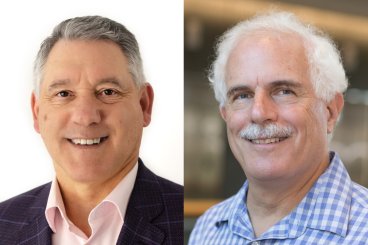
New Treatments for Epilepsy and Acute Anxiety
Company partner: Sollievo Pharmaceuticals, Inc.
April 8, 2024
3:35 - 4:30pm CT
Emergency in the Emergency Department
Robert K. Schultz, Ph.D., President and CEO, Sollievo Pharmaceuticals, Inc.
Intranasal Delivery of a Diazepam Prodrug for Rapid Reversal of Seizures
Ronald A. Siegel, Sc.D., Professor, Departments of Pharmaceutics and Biomedical Engineering, University of Minnesota
+
Feb. 12, 2024: Immune cell therapy solutions (Bio-Techne)
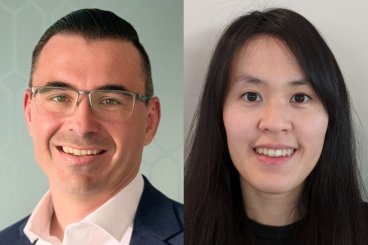
Immune Cell Therapy Solutions
Company partner: Bio-Techne
February 12, 2024
3:35–4:30pm CT
Non-Viral gene editing using TcBuster Transposon system for CAR T Therapy
David Hermanson, Director, Cell & Gene Therapy Applications, Bio-Techne
Exploring the frontiers of immune response: study of T cell media and behavior
Jennifer Kang, PhD Candidate, UMN Department of Biomedical Engineering
+
Nov. 13, 2023: Polymer engineering for medical devices (Zeta Scientific LLC and Biolinq Inc.)
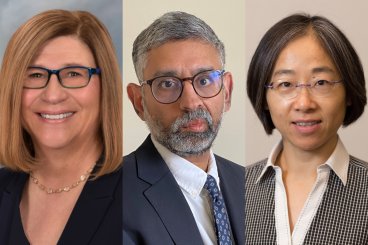
Polymer engineering for medical devices
Company partners: Zeta Scientific LLC and Biolinq Inc.
November 13, 2023
3:35–4:30pm CT
SPE MPD and the intersection of polymers and healthcare
Joanne Moody, Zeta Scientific LLC
Medical device innovation with polyurethanes
Ajay D. Padsalgikar, Biolinq Inc.
Biodegradable and implantable elastomers
Wei Shen, Department of Biomedical Engineering, University of Minnesota
+
Oct. 9, 2023: Women's health (FemTherapeutics)
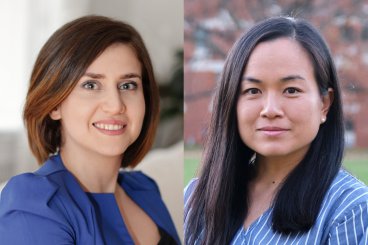
Engineering and women's health
Company partner: FemTherapeutics
October 9, 2023
3:35 - 4:30pm CT
Personalized medicine for women: Leveraging AI and 3D printing
Negin Ashouri, FemTherapeutics
Computational models for pregnancy
Kyoko Yoshida, Department of Biomedical Engineering, University of Minnesota
+
March 13, 2023: Molecular interactions and toolsets (Bio-Techne)
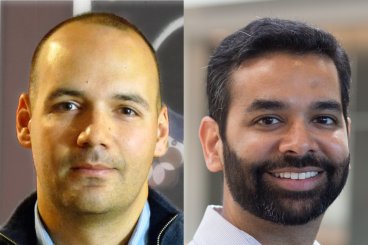
Engineering tailored molecular interactions and toolsets
Company partner: Bio-Techne
March 13, 2023
3:35 - 4:30pm CT
Antibody development and characterization for applications in biotechnology
Wesley Errington, Scientist, Antibody Development, Bio-Techne
Forward and reverse engineering of multivalency to tune protein binding dynamics
Casim Sarkar, Professor, Department of Biomedical Engineering, University of Minnesota
+
Feb. 13, 2023: Organ and tissue preservation (Sylvatica Biotech)
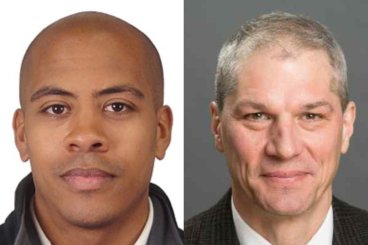
The promise of organ and tissue preservation to transform medicine
Company partner: Sylvatica Biotech
February 13, 2023
3:35 - 4:30pm CT
Control of Biological Time in Practice: Supply chain needs for tissues and organs in medicine and near-term technology applications
Sebastian Giwa, founder of Sylvatica Biotech, Expanse Bio, Ossium Health, Elevian Inc., and the Organ Preservation Alliance; IEM Fellow and Chairman of ATP-Bio Partners
Advanced technologies for the preservation of biological systems (ATP-Bio) NSF ERC
John Bischof, Professor of Mechanical and Biomedical Engineering; Director of IEM and ATP-Bio
+
Dec. 12, 2022: Audio based therapeutics (CurieAI)
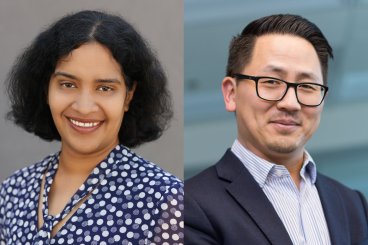
Audio based health monitoring, diagnostics and therapeutics
Company partner: CurieAI
December 12, 2022
3:35 - 4:30pm CT
Ambient audio based health monitoring and diagnostics in elderly patients with acute and chronic respiratory conditions
Navya Davuluri, Co-founder and CEO, CurieAI
Audio therapy combined with neuromodulation can drive brain changes towards treating pain and hearing disorders
Hubert Lim, Professor of Biomedical Engineering and Otolaryngology, University of Minnesota
+
Nov. 14, 2022: Machine learning (3D Predict)
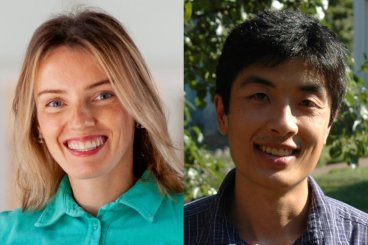
Machine learning in basic neuroscience and medical image processing
Company partner: 3D Predict
November 14, 2022
3:35 - 4:30pm CT
Machine learning in medical image processing: How advanced ML-diagnostics changes the treatment planning and outcomes (real-life example in Orthodontics)
Marina Domracheva, 3D Predict
Machine learning in visual and cognitive neuroscience
Kendrick Kay, University of Minnesota
+
Oct. 24, 2022: Interventional oncology (Boston Scientific)
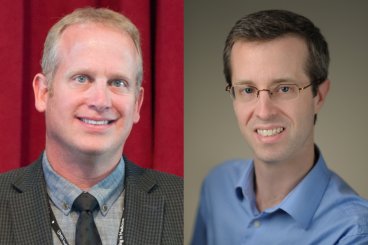
Technical advances in interventional oncology
Company partner: Boston Scientific
October 24, 2022
3:35 - 4:30pm CT
Delivering cancer therapy with Y90 radioembolization
Bruce Forsyth, Sr. R&D Fellow, Interventional Oncology, Boston Scientific
Manipulating the dynamics of the cellular DNA damage response to control tumor cell fate
Eric Batchelor, Department of Integrative Biology and Physiology, University of Minnesota Medical School
+
Sept, 12, 2022: Precision medicine for brain diseases (Cordance Medical)
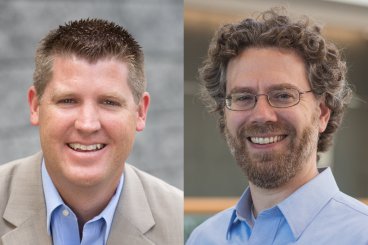
Bringing precision medicine to patients with brain diseases
Company partner: Cordance Medical
September 12, 2022
3:35 - 4:30pm CT
A focused ultrasound platform that opens the blood-brain barrier with a simple, non-invasive 30-minute clinic procedure
Ryan Dittamore, Cordance Medical
Small molecule drug discovery targeting toxic amyloid oligomers for treatment of neurodegeneration
Jonathan Sachs, Department of Biomedical Engineering
+
May 9, 2022: Closed-loop therapy of the nervous system (Medtronic)
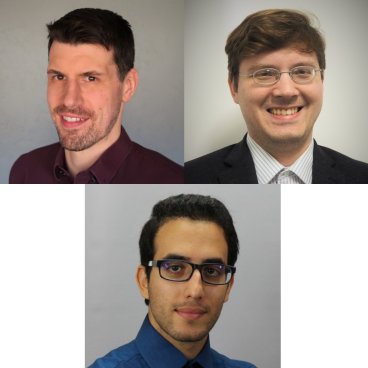
New technologies for closed-loop therapy of the nervous system
Company partner: Medtronic
May 9, 2022
3:35–4:30pm CT
- Closed-loop spinal cord stimulation using sensed evoked compound action potentials (ECAPs) — Hank Bink, Medtronic
- Tracking physiological signals for improved neurostimulation protocols — Alexander Opitz, Department of Biomedical Engineering
- Methods for closed-loop phase-dependent neurostimulation — Sina Shirinpour, Department of Biomedical Engineering
+
April 11, 2022: Better pain therapy (Abbott)
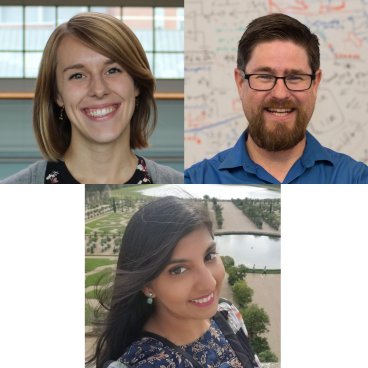
Better pain therapy by leveraging remote technologies and biomarkers
Company partner: Abbott
April 11, 2022
3:35–4:30pm CT
Biomarkers for monitoring efficacy of neuromodulatory treatments for inflammation and pain
Claire Kaiser, Department of Biomedical Engineering
The need for improved pain therapeutics
Tay Netoff, Department of Biomedical Engineering
Digital health in neuromodulation
Yagna Pathak, Abbott
+
March 14, 2022: Wound healing and therapeutic delivery (3M)
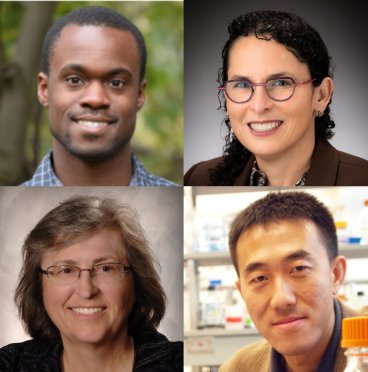
Materials and devices for wound healing and therapeutic delivery
Company partner: 3M
March 14, 2022
3:35–4:30pm CT
CAPRO: A novel biodegradable material for drug delivery
Marcus Flowers, Department of Biomedical Engineering
Materials and devices for wound healing
Kris Kieswetter, 3M
Amy McNulty, 3M
Polymer wafers for noninvasive delivery of protein vaccines
Chun Wang, Department of Biomedical Engineering
+
Feb. 14, 2022: Venous interventions (Boston Scientific)
Innovations in peripheral venous interventions
Company partner: Boston Scientific
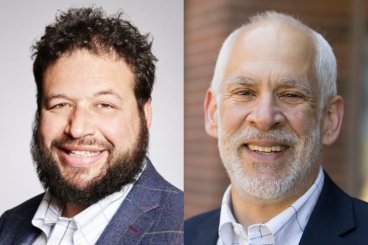
Feb. 14, 2022
3:35–4:30pm CT
Varithena: Treating veins with injectable foam
Benjamin Bayder
Sr. Product Manager, Venous Marketing, Boston Scientific
Tissue-engineered transcatheter vein valve
Robert Tranquillo
Distinguished McKnight University Professor, Department of Biomedical Engineering
+
Jan. 10, 2022: Bioengineering platforms to understand human disease (Bio-Techne)
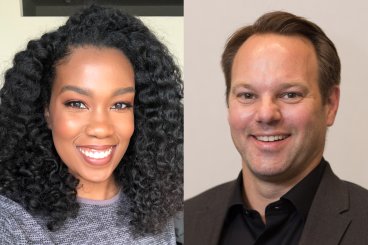
Bioengineering platforms to understand human disease
Company partner: Bio-Techne
Jan. 10, 2022
3:35–4:30pm CT
- Amanda Alexander, Bio-Techne — Using EllaTM, a microfluidic automated ELISA platform, in neurodegenerative disease research
- Paolo Provenzano, Department of Biomedical Engineering — Stromal disruption and cell engineering strategies to enhance distribution of cytotoxic T cells
+
Nov. 8, 2021: Image-guided therapies (Medtronic)
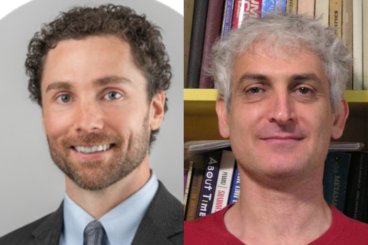
The role of photoacoustics, ultrasound, and electromagnetics in image-guided therapies
Company partner: Medtronic
November 8, 2021
3:35–4:30pm CT
- Joseph Brannan, Medtronic — Medtronic image guided tumor ablation technology
- Shai Ashkenazi, Department of Biomedical Engineering — Photoacoustic technology for sensing and imaging
+
Oct. 11, 2021: Clinical applications of neurostimulation (Inspire Medical Systems)
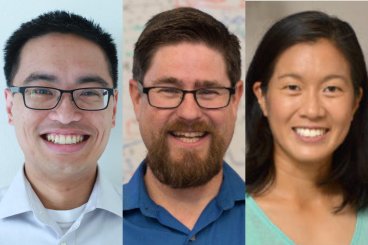
Clinical applications of neurostimulation
Company partner: Inspire Medical Systems
Oct. 11, 2021
3:35–4:30pm CT
Speakers
- Kent Lee, Research Fellow, Inspire Medical Systems—How a new neurostimulation therapy for treating obstructive sleep apnea was developed
- Jennifer Hsia, Assistant Professor, Department of Otolaryngology—Physician and patient’s perspective on Inspire therapy experience and programming
- Tay Netoff, Professor, Department of Biomedical Engineering
+
Sept. 13, 2021: Enhancing Human Senses (Starkey)
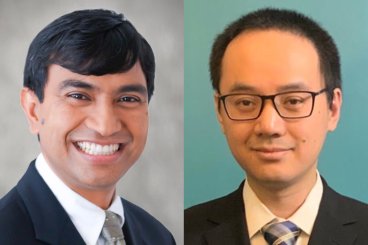
Enhancing human senses
Company partner: Starkey
Sept. 13
3:35–4:30pm CT
The human sensory perception system is remarkable, allowing us to sense and understand the world around us almost effortlessly. However, as we age, our sensation, perception, and cognition systems generally degrade. Traumatic injuries from accidents or overexposure to harmful stimulus levels can also result in catastrophic impact to human perceptual processes. Sustained sensory deprivations have been associated with cognitive declines and other comorbidities.
Recent technological advances in sensors and computation, especially breakthroughs in miniaturized hardware components and artificial intelligence algorithms based on modern machine learning techniques, are increasingly enabling the development of various types of assistive devices that can help enhance and augment the human senses. In this lecture, we will review:
- The neuroscience of sensory perception system
- Mechanisms and impacts of common sensory deficiencies
- Recent advances and future trends in perceptual assistive technologies
Speakers
- Achin Bhowmik, PhD, Chief Technology Officer at Starkey and Adjunct Professor at Stanford
- Zhi Yang, PhD, Department of Biomedical Engineering at the University of Minnesota and Fasikl Inc.
+
April 19, 2021: Computational modeling (Medtronic)

Computational models to provide physiologic insights and aid in clinical study design
Company partner: Medtronic
April 19, 2021
3:35–4:30pm CT
Speakers
- Computational modeling in cardiac implantables at Medtronic—Ruth Nicholson Klepfer, Innovation Director, Cardiac Implantables, Medtronic
- Research examples of the value of computational modeling in medical devices—Troy Jackson, Distinguished Scientist, Cardiac Implantables, Medtronic
- Biophysical modeling for COVID-19 antiviral development—David Odde, Professor, Department of Biomedical Engineering
- Biophysical modeling for cancer cell migration—Sarah Anderson, BME PhD candidate
+
March 8, 2021: AI for stroke treatment (Minnetronix Medical)
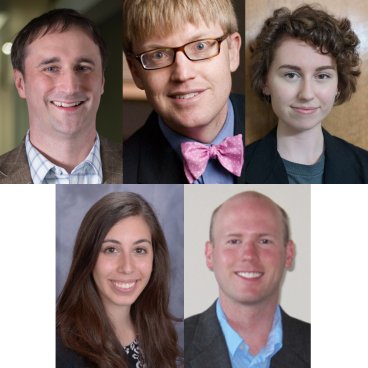
Developing an AI-based system for improved hemorrhagic stroke treatment: A case study in collaboration
Company partner: Minnetronix Medical
March 8, 2021
3:35–4:30pm CT
- Pursuing Better Patient Outcomes by Linking Interventions with Decision Support — Aaron McCabe, PhD, Minnetronix Medical
- Interventional Needs enabled by Decision Support in the ICH Population – Andrew Grande, MD, Department of Neurosurgery
- A Collaborative Approach to AI Development – Laura Zitella Verbick, PhD, Minnetronix Medical
- Reflections and Learnings from Collaboration – Kaitlin Kramer, Minnetronix Medical
- BME Curriculum and Student Research Experiences working with Medical Image Processing and AI – Matthew Johnson, PhD, Department of Biomedical Engineering
+
Feb. 8, 2021: Microfluidics (Bio-Techne)
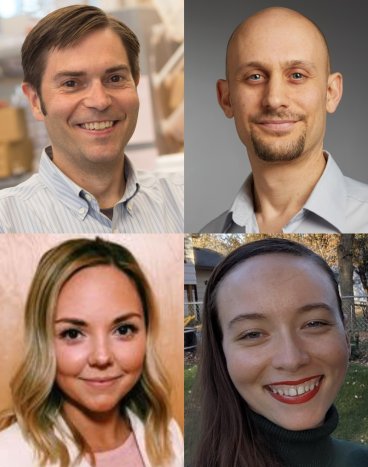
Microfluidics in bioengineering: Small tools with big impacts
Company partner: Bio-Techne
Feb. 8, 2021
3:35–4:30pm CT
- Intro — Dave Wood, Associate Professor, Department of Biomedical Engineering
- A microfluidics-based, automated ELISA platform: Next generation immunoassays for better precision and reproducibility — Yoav Noam, Scientist and Supervisor, Bio-Techne
- Tissue engineering on a chip — Lizzy Crist, PhD Candidate, Department of Biomedical Engineering
- Microfluidics for synthesis and manufacturing — Ali Crampton, Researcher, Department of Biomedical Engineering